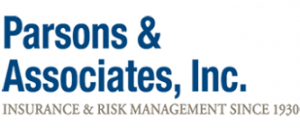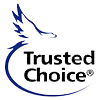Insights and Updates| Summer 2014
Insights and Updates| Summer 2014
|
|
 folder/images/agency-parsonassociates.jpg) |
| [ Summer 2014 • New York ] |
 folder/images/452999139_boat.jpg) |
||||||
Boating this summer?
|
Index |
|||||
While there are some exceptions, any person born on or after May 1, 1996, and at least 10 years old who operates a motorboat must have a boating safety certificate issued by the Office of Parks, Recreation and Historic Preservation; the U.S. Coast Guard Auxiliary or the U.S. Power Squadron. The state requires that anyone operating a personal watercraft completes an approved course in boating safety or otherwise be accompanied, on board, by someone 18 years of age or older who is the holder of an approved boating safety certificate. Certificates are required to be carried at all times when operating the personal watercraft. For more information, visit nysparks.com. Over 50 percent of boating fatalities are alcohol-related. Alcohol impairs judgment, balance and coordination, especially in the water. State law prohibits operation of a boat on state waters while one is impaired by drugs or alcohol or is intoxicated with a blood alcohol content of 0.08 percent or more. Violators can face up to a $1,000 fine; up to one year in jail; loss of boat operating privileges for one year; and it also will show up on your driving history and could affect your auto insurance policy. If you own a boat, you probably need specialized coverage (e.g., increased liability limits with an umbrella policy). Most homeowners insurance policies provide liability insurance for smaller motorboats with outboard motors of 25 horsepower or less, and for sailboats less than 26 feet long. Typically, there is $1,500 coverage for damage to the boat for specified perils. However, theft and windstorm coverage is limited and sinking is not covered at all. Before you sail off into the sunset, give our agency a call. We will help you obtain and secure the coverage you will need. |
||||||
Trampolines and insuranceIf you own a trampoline and someone is injured on it, your standard homeowners insurance policy should cover the incident. When your policy is new, or when it’s renewed, you might be asked if you have a trampoline. If you don’t maintain the trampoline, the insurance company may reject or nonrenew your policy. Trampoline injuries (e.g., sprains and fractures, paralysis or death), are a leading cause of emergency-room trips in the U.S. each year. The dangerous nature of trampolines is the reason your insurance company scrutinizes the use of them. Play it safe. Make sure children have adult supervision; only let one person jump on the device at a time; designate spotters; cover all metal with padding; and remove ladders to prevent unauthorized use. If you want to purchase a trampoline, give us a call. We’ll discuss your coverage options. If you’ve purchased the trampoline, give us a call too. |
||||
 folder/images/96441097_mold.jpg) |
||||
Mold coverage for homeownersNot all mold rises to the level of concern seemingly warranted by media hysteria. Many thousands of mold varieties exist and experts classify them three ways, according to human responses to exposure: allergenic, pathogenic and toxigenic molds. People with allergies or asthma are most affected by allergenic molds. This type of mold can produce scratchy throats, eye and nose irritations and rashes. This is the most common variety of mold. Pathogenic molds can cause infections in those with weakened immune systems, but healthy people usually can resist infection. Toxigenic molds can cause serious health effects in almost anybody. These are the molds television news warns you about—most famously, black mold. Its effects can range from short-term irritation to immunosuppression and even cancer. The majority of molds do not represent a mortal danger. However, it is fair to say that mold is not something you want in your home. Thus the real question is: Is mold clean-up covered by my homeowners policy? Unfortunately, the answer is: Probably not. The standard homeowners policy is designed to protect against sudden and accidental loses. Mold commonly arises from long-term issues (e.g., ongoing water seepage, humidity problems, faulty drainage or condensation). Mold from any of these sources would be considered a “maintenance” problem and not covered ordinarily by a standard homeowners insurance policy. On the other hand, mold that stems from burst pipes or similar incidents may be covered by your insurance policy. For more comprehensive mold coverage, some policies offer mold endorsements, which allow you to pay an additional premium in exchange for limited mold coverage. The trend, however, is away from coverage. Some insurance companies exclude coverage of mold-related damage completely, regardless of the source. Many more carriers write their policies to cap the amount of mold coverage or pay only for certain provisions, such as cleanup or testing. |
||||
 folder/images/200117715_atv.jpg) |
||||
Most ATV fatalities preventableWith the abundance of beautiful wooded and rural areas, it’s no surprise that off-roading on an ATV is a popular recreational choice. To partake in your favorite activity safely, keep in mind that most ATV-related fatalities occur on public or private roads, especially when engaging in risky behavior. ATVs are designed to allow you to ride in conditions that normal vehicles cannot handle: Rocky and grassy terrain and steep trails are no challenge for an ATV; however, while these vehicles can reach highway speeds, the low-pressure tires are not designed for paved surfaces, and can overturn. Important safety tips: First, drive an ATV in the way it was meant to be driven—off road. Second, treat driving your ATV the way you would treat driving your car or your motorcycle: sober and with safety gear (i.e., helmets). Finally, consider a dedicated ATV insurance policy, which could cover the following:
The risk is clear: Overall, only 13 percent of drivers and 6 percent of passengers killed wore helmets, and around 75 percent of fatal ATV crashes involved only one vehicle, 56 percent of which involved a rollover. Give our agency a call to discuss ATV insurance, and ride safely! |
||||
 folder/images/144353408_traffic.jpg) |
||||
Umbrella insurance and a rainy dayConsider the following example: If you are thinking you’re the unfortunate bicycle rider, think again: You could be the commuter; who is wondering where are you going to find several hundred thousand dollars. While your auto policy covered $500,000, you’re responsible for the balance. What is personal umbrella insurance? Personal umbrella insurance is protection above and beyond your auto, homeowners and boating policies. Since umbrella policies are accessed after the liability coverage from your homeowners, automobile or boating policies are exceeded; umbrella policies usually are inexpensive. A million-dollar or larger policy costs between $200-300 dollars per year. Following are two of the coverages typically offered by a personal
This is just a brief overview. We can review your insurance policies to determine if a personal umbrella policy is right for you. |
||||
News from our agency |
|||||
| Insurance and its pricing can be confusing. National direct-writer companies spend millions of dollars advertising their products and even hire celebrities to tell you about the great rates they offer. They even give you a website for a quote. How convenient. But is it?
If you buy directly on the Internet, you lose the personal attention and advice that you will get from your professional (and local), independent insurance agent. Unlike one-company agencies that represent a single insurance company, we will shop around and find you the most appropriate coverage for your needs. Professional, independent insurance agents offer you personalized one-on-one service. We’re right here in your community. We’re your neighbors. We know your needs and wants. If you have a claim, we’ll be there for you. We’re there when you need us. Call our agency today to get advice on your insurance needs. |
 folder/images/10069719_news.jpg) |
||||
|
The information in this newsletter is meant as a guideline only. There is If you prefer not to receive this email newsletter from Parsons Associates, click here. |
||||

 folder/images/logo-insights.jpg)






Leave a Reply
Want to join the discussion?Feel free to contribute!